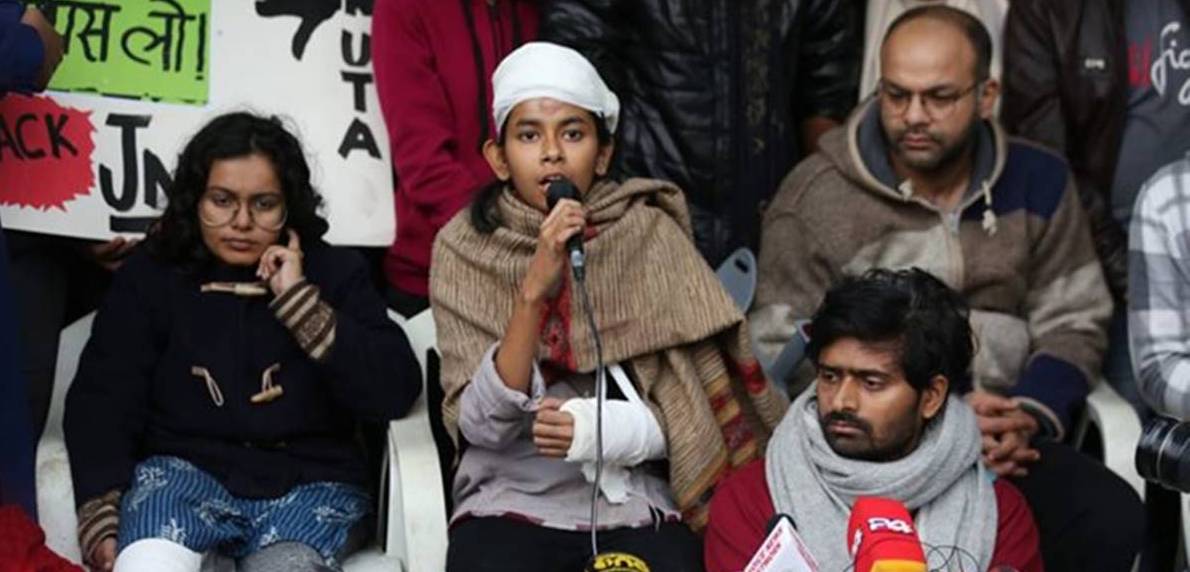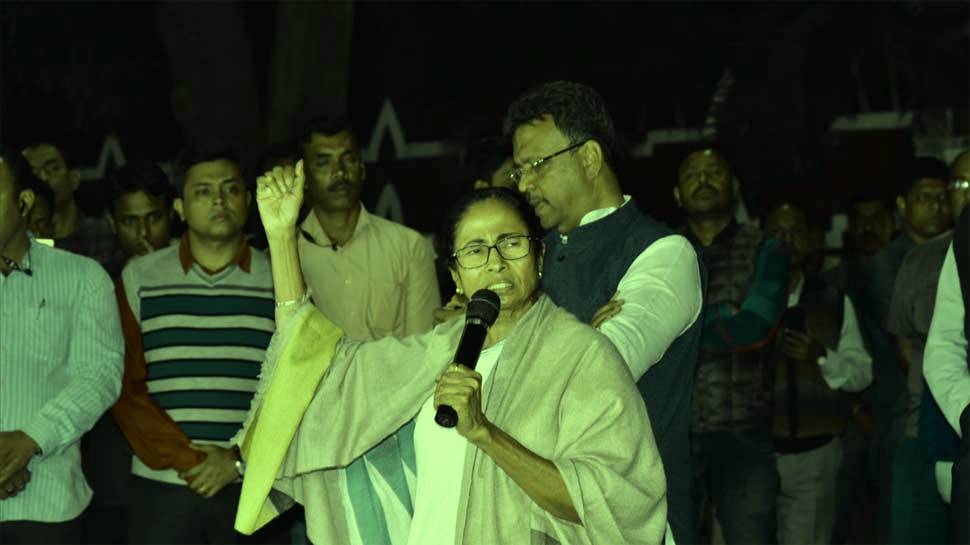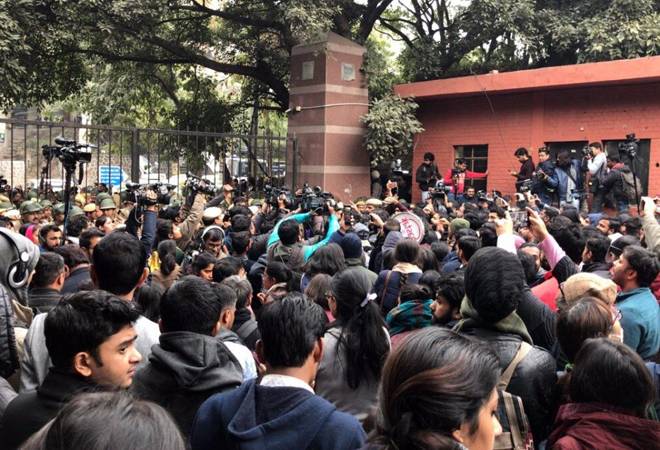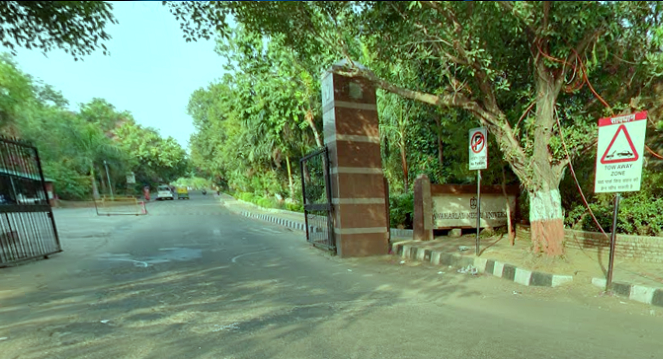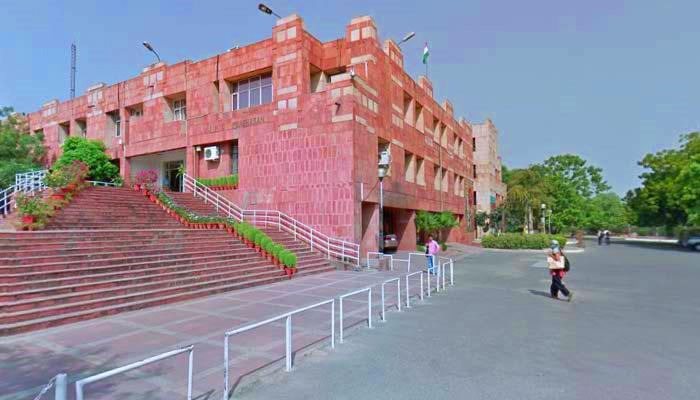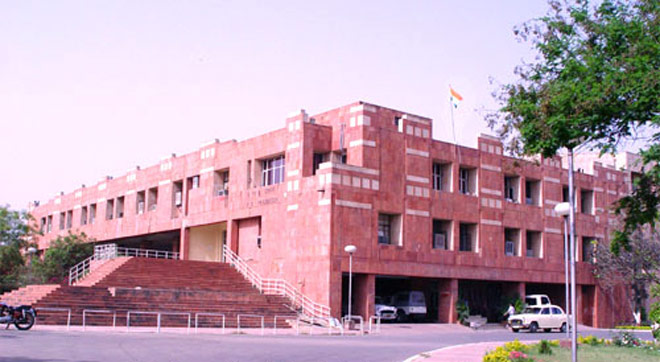The latest in the long list of sedition cases slapped by the Indian Government on protestors is the that of Sharjeel Imam. Sharjeel Imam has been lately accused of delivering a speech which promotes violence and secessionism in the country.
According to the police, he allegedly made the speech at Aligarh Muslim University, Uttar Pradesh, on January 16. In a video recording of the speech, Imam purportedly said that India and the North East could be “permanently cut” if “five lakh people can be organized”.Lawyers have questioned the use of sedition charges against Sharjeel Imam.
“If we start filing such cases, then, half of the political establishment could be in jail,” said Chitranshul Sinha, a lawyer who practices at the Supreme Court and who has written a recent book on the history of the sedition law.He has reportedly been arrested from his hometown – Bihar’s Jehenabad. Imam had been absconding since Sunday morning, when the FIR was first registered against him.
Who is Sharjeel Imam?
Sharjeel Imam is a 31-year-old student at Jawaharlal Nehru University pursuing his PhD in modern Indian history. He is also a graduate in computer science from the Indian Institute of Technology, Bombay.
After the police cases were filed against him, Manipur chief minister MN Biren Singh and Assam finance minister Himanta Biswa Sarma called him the “co-organiser of Shaheen Bagh protests.”
Imam was a volunteer at Shaheen Bagh, the locality in South Delhi where women have been staging a protest against the amended Citizenship Act and proposed nationwide National Register of Citizens for over 40 days now. According to his claims his association with the protest was short-lived. On January 2, he announced that the protest had been withdrawn in anticipation of violence, but the women protestors in Shaheen Bagh denied this. The protest continued.In a statement issued on January 25, Shaheen Bagh protestors said that no one person could be termed as the sole organizer of the protest. “The protest has been led by the women of Shaheen Bagh and it is unfair to associate their voice with any distorted media narrative,” the statement said.
The cases against Imam
Four of the five states that have filed cases against Imam are ruled by the Bharatiya Janata Party: Assam, Uttar Pradesh, Manipur and Arunachal Pradesh. The police force in the fifth state, Delhi, reports to the BJP government at the Centre.
The Assam police were the first to file an FIR against Imam on January 25. Charged were made for sedition, promoting religious enmity and inciting unlawful activity under Section 13 of the Unlawful Activities Prevention Act.
The same day, Aligarh police in Uttar Pradesh booked Imam for sedition and creating enmity between different religious groups.In Manipur, Rajat Sethi, an advisor to the chief minister, said the state police had filed an FIR against Imam for sedition, waging war against the Indian government, conspiracy to commit offences, indulging in vilification or attacks on a particular group. “The people of Manipur are especially hurt by the message of Mr Imam threatening to impose blockade on the North East region,” Sethi said.
On January 26, the Delhi police’s Special Investigating Team branch followed up with an FIR against Imam, which in addition to sedition and promoting religious enmity, made the charge of conducting public mischief. A police official has claimed that Imam made a “very inflammatory” speech outside Jamia Millia University on December 16. In Arunachal Pradesh, Chief Minister Pema Khandu tweeted on January 26 that the Crime Branch in Itanagar had filed an FIR against Imam, charging him with sedition and making imputations against a group. “This kind of provocation inciting secession of Assam and other NE [North Eastern] states from rest of India, creating communal disharmony, hampering sovereignty and territorial integrity of India will not be tolerated,” Khandu said.
Lawyer Chitranshul Sinha said other than Uttar Pradesh, other states would have to prove how Imam’s statements in Aligarh allegedly incited or had the tendency to incite violence in their states. “Only the police establishment in the territory where the offence has occured can have the jurisdiction of filing a case against an accused,” he said.
Sharjeel Imam’s Own Account
The controversy erupted due to a video that purportedly shows Imam making a speech at Aligarh Muslim University on January 16.
“If we can organise five lakh people then we can permanently cut India and the North East, if not permanently then at least for a month or so,” Imam appears to say in a video recording of the speech, which went viral only after the cases were booked against him.
In the rambling, 40-minute long speech, Imam criticized Congress, Aam Aadmi Party, former JNU student leader Kanhaiya Kumar. He expressed disagreement with those from JNU and Jamia University who were advocating broad-based protests against the Citizenship Act.
Drawing attention to the condition of Muslims in Assam, he asked for rubble to put on tracks, for the roads to be shut off, for supplies to be stopped. “And it can be stopped because the Chicken Neck’s [the corridor connecting the North East to the rest of India] is a Muslim dominated area,” he said.
“People like Kanhaiya [Kumar] will go there and shout slogans of inquilab, click photos and then come back. Our people will clap but his face will be seen.”
After the Assam police filed an FIR against him, Imam told The Indian Express he was merely calling for a “chakka jam”. “I was saying we should try to peacefully block roads wherever possible,” he said. “In that context, I said you have to block roads going to Assam.”
On January 26, the police of Delhi, Uttar Pradesh and Bihar conducted a joint raid at Imam’s home in Bihar but he was not found, The Times of India reported.
However, two of his relatives and their driver were detained by police for interrogation, Jehanabad Superintendent of Police Manish Kumar told PTI.


